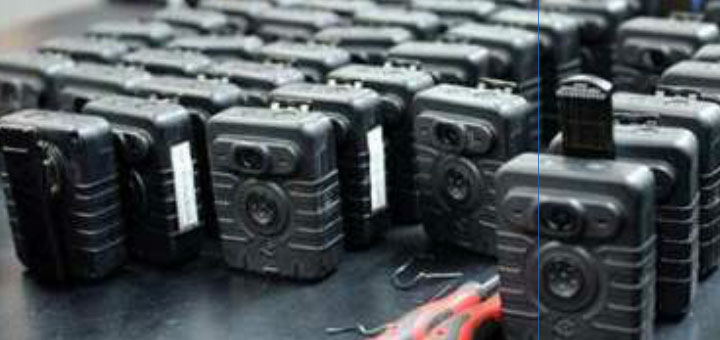A total of 120 body cameras are to be deployed in six police divisions in Jamaica, with the aim of building a strong and effective police force. Over time, the body camera project, which is a collaborative effort between the Jamaica Constabulary Force (JCF) and the United States Embassy, will benefit the rest of the Force.
Speaking at the launch on August 25, National Security Minister, Robert Montague, said strong and effective policing represented one pillar of his ministry’s five-pillar strategy to reduce crime. Montague indicated that the use of body-worn cameras is an element to be used to build trust between the citizens and the police.
“This effort is a significant investment in improving transparency in the conduct of police operations. It provides an impartial third witness, especially in cases where accusations of biases and wrongdoings on the part of the police may be made,” he said.
The minister is expecting that the cameras, which are to be worn on the pockets or vests of the police, will aid in safeguarding the rights of the police and citizens. He noted that the handover of the cameras represented a further step in efforts to provide the police with the necessary tools and resources to perform their duties professionally and competently.
Meanwhile, United States ambassador to Jamaica, Luis Moreno, said the body camera is not a “panacea” but rather a “great step in the right direction.” He said the project represented one of the broad partnerships in crime prevention on which the United States and Jamaica have collaborated, and stressed the importance of regional coordination as an essential ingredient to combating crime.
Accepting the body cameras, Police Commissioner, Dr Carl Williams, said they “mark the start of a new chapter in police accountability.” He said the devices would enable the building of public trust between police and citizens and provide protection against false accusations. The commissioner noted that persons using the cameras will be trained and certified, and that those given cameras will be monitored.
Superintendent of Police in Charge of the Information and Communication Technology Division, Norris Rhoomes, in a demonstration of the cameras, described them as tamper-proof. He said each camera carries a serial number, which will be assigned to the police officer, adding that they are equipped with capabilities for recording night and day footage, up to five to ten hours, and can be kept for a period of time.

